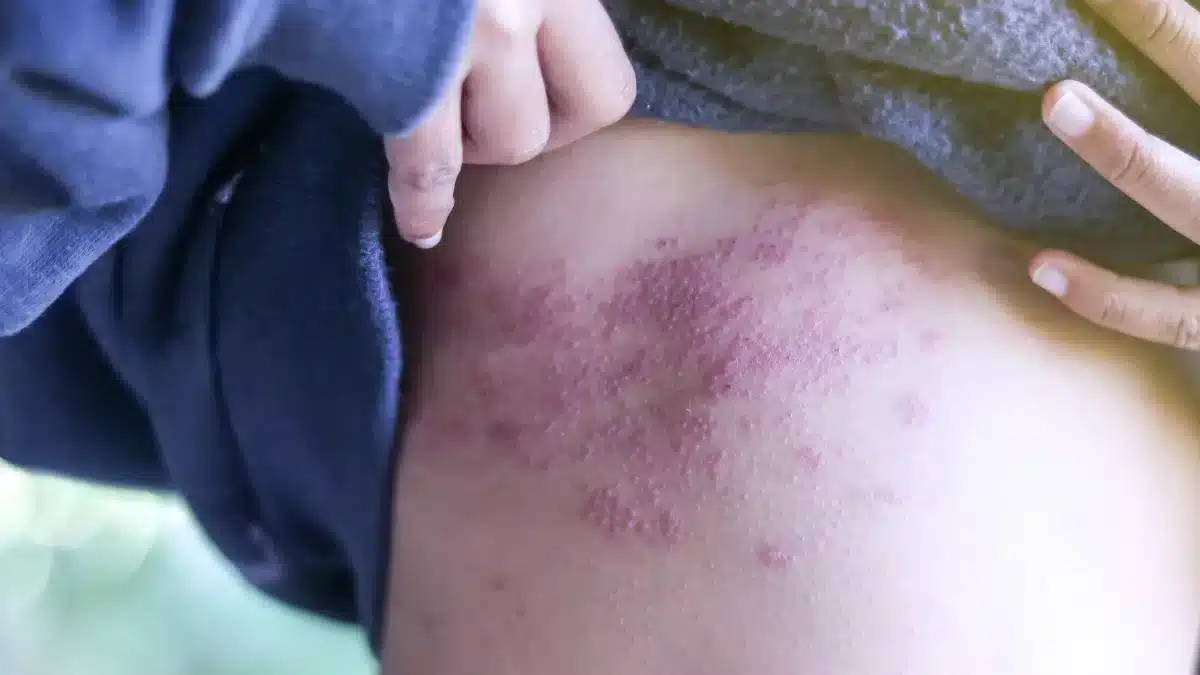Genital Warts vs Herpes: What is The Difference?
Bumps in the genital area can occur for many reasons.
These can be normal pimples, sores, blisters, and warts.
Two of the most common occurrences of all are Genital Warts and Herpes, which are often mistaken for each other.
Both are caused by Sexually Transmitted Infections (STIs). Genital Warts are a result of HPV whereas Genital Herpes is caused by HSV.
According to the CDC, in 2018, one in every five people had an STI, out of which HPV and HSV-2 were two prevalent ones.
Since these two are common and misinterpreted, the treatment of Genital Warts and Herpes can be difficult or delayed.
To clear the confusion, this article briefly compares the two conditions in the form of Genital Warts vs Herpes, including their symptoms, differences, diagnosis, and treatment.
Genital Warts vs Herpes: Overview
| Factors | Genital Warts | Herpes |
|---|---|---|
| Appearance | Genital warts are raised, small skin-colored or whitish-gray bumps that are rough and leave no open sores | Herpes appear as clustered blisters filled with a clear liquid that may leave open sores |
| Cause | Genital warts are caused by Human Papillomavirus Virus (HPV) | Herpes is caused by Herpes Simplex Virus (HSV), which can be either HSV-1 or HSV-2 |
| Diagnosis | Genital Warts are tested by pelvic or anal exam | A medical professional can detect Herpes through visual examination or blood test |
| Treatment | If Genital Warts cause itching, pain, or burning, medications with Trichloroacetic acid, Imiquimod, or Sinecatechins can be used to treat them. Other options are surgery, laser cryotherapy, etc | Antiviral medicines like Acyclovir, Famciclovir, and Valacyclovir are used to treat Herpes |
| Complications | HPV infection, which causes Genital Warts, is also associated with a few cancer and pregnancy issues | HSV infection that leads to Herpes can also cause painful ulcers, internal inflammatory disease, and finger infections |
Genital Warts vs Herpes
Genital Warts and Herpes are common and look similar, but a few characteristics can tell them apart.
Genital Warts are small-sized bumps of skin color or whitish-gray rough growths.
Sometimes, a few can cluster together to make a cauliflower-like shape.
They do not cause much pain and leave no open sores.
In contrast, Herpes causes white or red blisters with clear fluid.
These clustered blisters can leave open painful sores that take a week to heal.
Symptoms

Genital Warts can be so tiny that they can go unnoticed.
However, a few of their visible symptoms and related issues are:
- Bleeding during sex
- Itching or discomfort in the genital area
- Small skin or some other color swelling on or around genitals
- A cauliflower-like shape created by a few warts that cluster together
- Burning sensation
Herpes symptoms can be more severe. Some of them are:
- Painful ulcers after blisters rupture and fluid oozes out
- Itching around the genitals
- Painful urination
- Small bumps around the genitals
- Discharge from the vagina in females
- Flu-like symptoms like fever, swollen lymph nodes, body aches, and headache
- Scabs on healing ulcers
Causes
Genital Warts are caused by HPV or Human Papillomavirus.
They spread mainly through direct sexual contact with an infected person.
On the other hand, Herpes is caused by HSV or Herpes Simplex Virus (HSV-1 or HSV-2).
They also spread primarily through sexual contact.
Genital Warts and Herpes diagnosis

Genital Warts are tested by doctors through:
- Physical exam: A medical professional conducts a physical exam to confirm Genital warts
- Biopsy: The process involves removing a piece of tissue for lab testing
- Pap tests: Cells from the cervix are collected to check for bumps. It can also help detect cervical cancer
- Anal Exam: These are used to detect warts inside the anus through an instrument called an anoscope
Herpes is comparatively easier to diagnose.
Medical professionals may diagnose through:
- Physical exam: By looking at the blisters, a doctor will likely tell if it’s Herpes. It can also involve discussion about details of sexual activity
- Lab test: For confirmation, a sample from an active sore is taken to detect HSV
- Blood Test: Sometimes, a blood sample can be taken for lab testing to detect HSV or other possible STIs
How to Treat Genital Warts and Herpes
Although there is no treatment for HPV, the cause of Genital Warts, the virus clears itself within two years.
Moreover, several treatments can help reduce symptoms or get rid of warts. Some of them are:
- Trichloroacetic acid: This chemical treatment is used for burning genital warts
- Imiquimod: It improves the body’s ability to fight infection and build immunity
- Podophyllin and Podofilox: Both work by destroying the wart tissue. Podophyllin is used by medical experts, while Podofilox can be used at home
- Sinecatechins: It is an ointment used for treating genital warts or those around the anus
- Electrocautery: The process involves the use of electric current to burn warts
- Surgical removal: A wart is cut out or scraped using an instrument
- Laser removal: In this procedure, the wart is destroyed with a laser beam
- Cryotherapy: It involves freezing the wart tissue using liquid nitrogen and removing it
Genital Herpes has no cure, but the condition can be treated with antiviral pills.
They help sores to heal, prevent transmission, and reduce the chances and severity of recurrent outbreaks.
Some medicines prescribed by doctors for Herpes are:
- Acyclovir (Zovirax)
- Famciclovir
- Valacyclovir (Valtrex)
Conclusion
Both Genital Warts and Herpes are common and similar, which often create confusion.
However, they have certain visible differences, as Genital Warts are small bumps with no clear fluid.
On the other hand, Herpes has clustered white, yellow, or red blisters, which can cause open sores.
Both are caused by STIs, but Genital Warts are a result of HPV, while Herpes is a sign of HSV.
Genital Warts cause symptoms like bleeding during sex, a burning sensation, and a cauliflower-like structure.
In contrast, Herpes causes painful ulcers and flu-like symptoms.
Genital Warts may require tests like Pap test, Biopsy, and Anal Exam, while Herpes can be detected through physical examination and blood tests if required.
Both of them can be managed and treated.
Genital warts require medications or surgical removal, while Herpes treatment requires Antiviral pills.
With the right care, treatment, and good hygiene, both conditions can be managed, offering better comfort and health.
Frequently Asked Questions
How do you know if you have Herpes or Genital Warts?
Both Herpes and Genital Warts are the results of STIs. They can be mistaken for each other, but they have slight differences. Herpes causes blisters filled with clear liquid that results in open sores, whereas Genital warts are small and raised bumps that do not turn into open sores.
Is there a difference between Herpes and Genital Warts?
Herpes is caused by the Herpes Simplex Virus (HSV). Its blisters appear in clusters with clear liquid. They can cause painful open sores that take time to heal. On the other hand, Genital warts are caused by Human Papillomavirus (HPV). These are small, raised bumps that do not cause open sores.
Which is worse Genital Warts or Herpes?
None of the two can be considered worse or less. Herpes can cause more pain and discomfort as it leaves open sores, whereas Genital Warts are associated with more complications like cancers. However, both of them can be controlled with the right treatment.
How do they test for Herpes and Genital Warts?
Genital Warts can be tested by a medical examiner through a physical exam, which can include a Pap test, or Biopsy. An anal exam through Anoscope can also be conducted. On the contrary, Genital Herpes can be depicted by a visual examination of sores or a blood test.
WowRx uses only high-quality sources while writing our articles. Please read our content information policy to know more about how we keep our content reliable and trustworthy.






